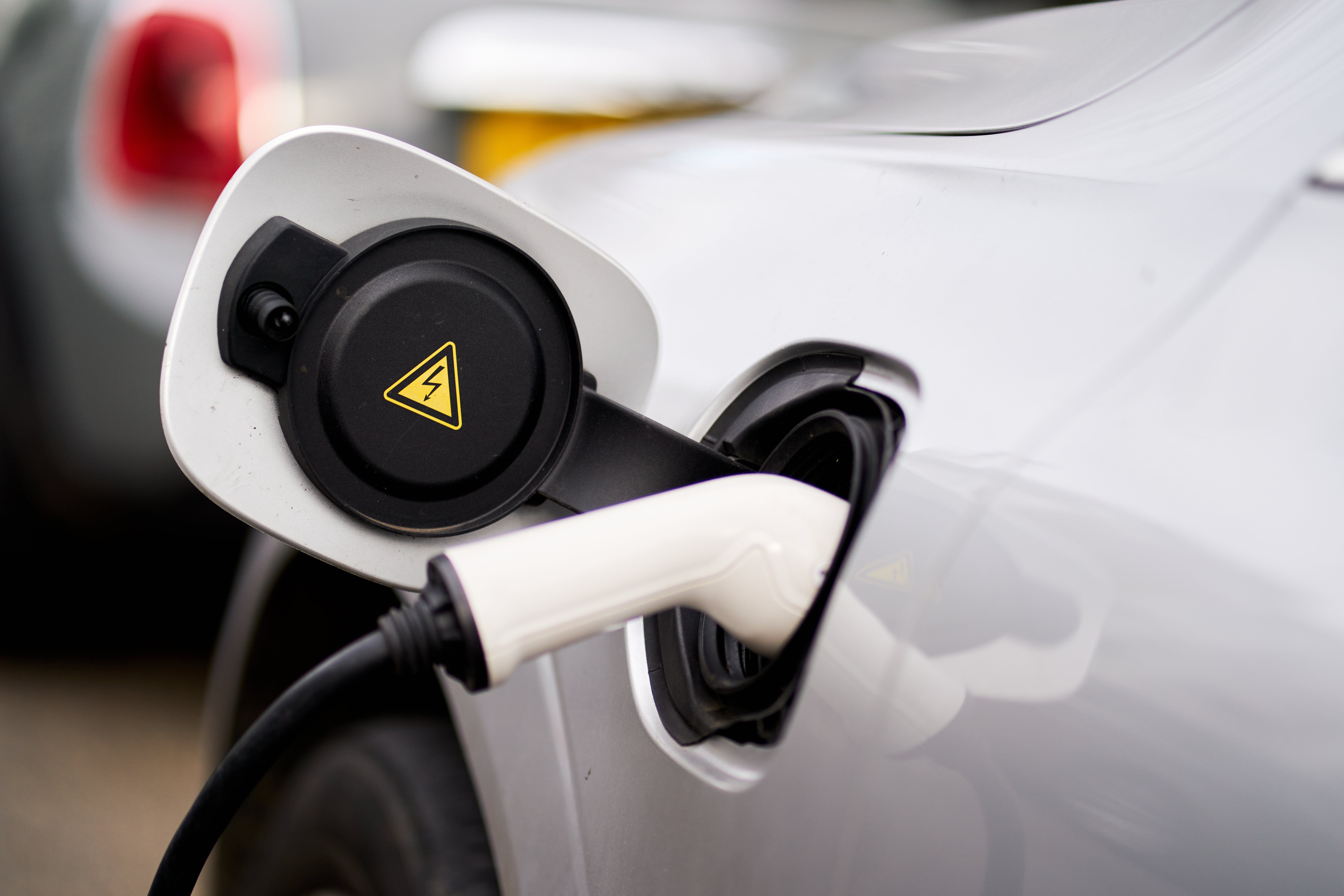The government is making a mistake in scrapping electric car grants
The upfront costs are still much higher than for petrol alternatives, which means consumers may now turn back to petrol, argues James Moore


As an observer of the British government, one is sometimes left wondering whether there are any lights on at all in Whitehall.
Policymaking currently seems stuck in endless cycles of reports and consultations – to the extent that business groups are left tearing their hair out – with the occasional explosion of activity when Boris Johnson hits on an idea he thinks might make one of his backbench factions hate him a little less.
Trouble is, when, occasionally, the government proves it is capable of acting decisively you usually end up preferring the paralysis. A case in point: the grants that were available to purchasers of electric vehicles (EVs), which have just been pulled out from under motorists by the Department for Transport at the drop of a motorway charging point.
Existing applications will be honoured but if you didn’t get yours in quick enough, bad luck. The grants are gone, without so much as a leak to a friendly Sunday newspaper to give warning.
There are those who, at this point, might ask what a government, which is hardly rolling in cash, is doing subsidising the purchasers of cars. The answer is that it was in pursuit of an important policy goal: the replacement of petrol and diesel-powered vehicles with electric alternatives.
This will reduce Britain’s carbon emissions and improve the dreadful air quality that can quite literally leave people living in urban areas gasping for breath. New petrol cars are due to be banned in 2030.
The grants were important towards helping with the transition and achieving those aims because EVs are still quite pricey when compared to petrol-powered alternatives.
Last year Which? surveyed 3,619 members of the public and found that while 41 per cent were open to switching to an electric car, a chunky 34 per cent were put off by the high upfront costs, which can amount to several thousand pounds for a typical hatchback.
Conducted last August, the survey took place before the cost of living crisis really started to bite – per the latest official statistics, basic pay is falling in real terms at its fastest rate in more than a decade.
You might argue that there is still a powerful incentive to go electric with the cost of filling up a tank having surged past £100. It costs less than half the price to run an electric vehicle, even with domestic electricity prices behaving like a hot air balloon with the gas on, and there are other benefits such as lower tax and designated parking spaces.
Trouble is, behavioural economics tells us that the average consumer will probably take one look at the upfront premium and run. Which? was afraid of that happening before the EV grants were reduced overnight in December and will treat their removal in much the same manner.
Motoring organisations have naturally expressed outrage, and no wonder. The AA’s president Edmund King said he feared individual drivers – and crucially fleet managers – could actually now move back to petrol “until they can find more cash”. It could be some time before that happens.
The RAC said that prices need to fall to make going electric more accessible. For that to happen, you need to encourage more take-up, not less (which is what the grants were doing).
The government’s rationale for the decision is that because the overall numbers have, to date, been decent, it now needs to focus on other types of vehicles (taxis, vans, motorbikes) and on improving the availability of charging points. This matters, especially in the case of the latter. Charging points can still be very hard to find in some parts of the country.
But the decision, and the way it was enacted, does not bode at all well for what had been a vanishingly-rare policy success.
True the government has a replacement in mind. Manufacturers are set to find themselves under the cosh of a “zero emissions vehicle mandate”, which will require them to ensure that a set proportion of the cars and vans (uptake of which is two years behind cars) they sell are electric.
There will be fines coming for those that fail to measure up. The consumer’s carrot is thus being replaced with a stick aimed at the seller.
The Society of Motor Manufacturers is not best pleased and no wonder. You can take a horse to water but that doesn’t mean you can make it drink, even with the aid of the most silver toungued of salesmen or women in the shiniest of suits.






Join our commenting forum
Join thought-provoking conversations, follow other Independent readers and see their replies
Comments